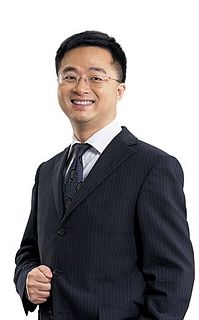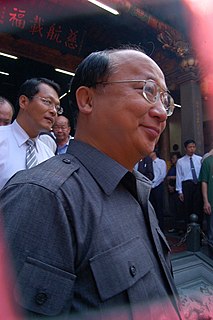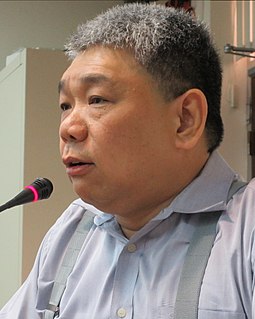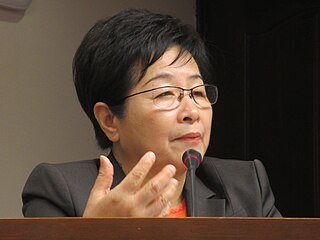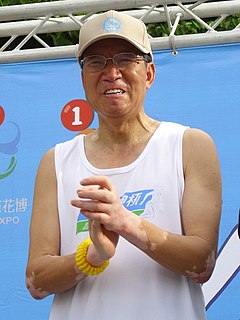Chen Tsiao-long | |
|---|---|
陳朝龍 | |
| Member of the Legislative Yuan | |
| In office 1 February 2002 –31 January 2008 | |
| Constituency | Taipei County 3 |
| Personal details | |
| Born | 1 October 1953 |
| Nationality | Taiwanese |
| Political party | Democratic Progressive Party |
| Alma mater | National Taipei University of Technology |
| Occupation | politician |
Chen Tsiao-long (Chinese :陳朝龍; born 1 October 1953) is a Taiwanese politician who served two terms as a member of the Legislative Yuan from 2002 to 2008.

Traditional Chinese characters are Chinese characters in any character set that does not contain newly created characters or character substitutions performed after 1946. They are most commonly the characters in the standardized character sets of Taiwan, of Hong Kong and Macau, and in the Kangxi Dictionary. The modern shapes of traditional Chinese characters first appeared with the emergence of the clerical script during the Han Dynasty, and have been more or less stable since the 5th century.

The Legislative Yuan is the unicameral legislature of the Republic of China now based in Taiwan. It is one of the five branches of government stipulated by the Constitution of the Republic of China, which follows Sun Yat-sen's Three Principles of the People. Sometimes referred to as a "parliament", the Legislative Yuan, under Sun's political theory, is a branch of government. According to the Judicial Yuan's interpretation number 76 of the Constitution (1957), the parliament of the republic includes all three of the National Assembly, the Legislative Yuan, and the Control Yuan. However, after constitutional amendments effectively transferring almost all of the National Assembly's powers to the Legislative Yuan in the late 1990s, it has become more common in Taiwanese newspapers to refer to the Legislative Yuan as “the parliament”.






